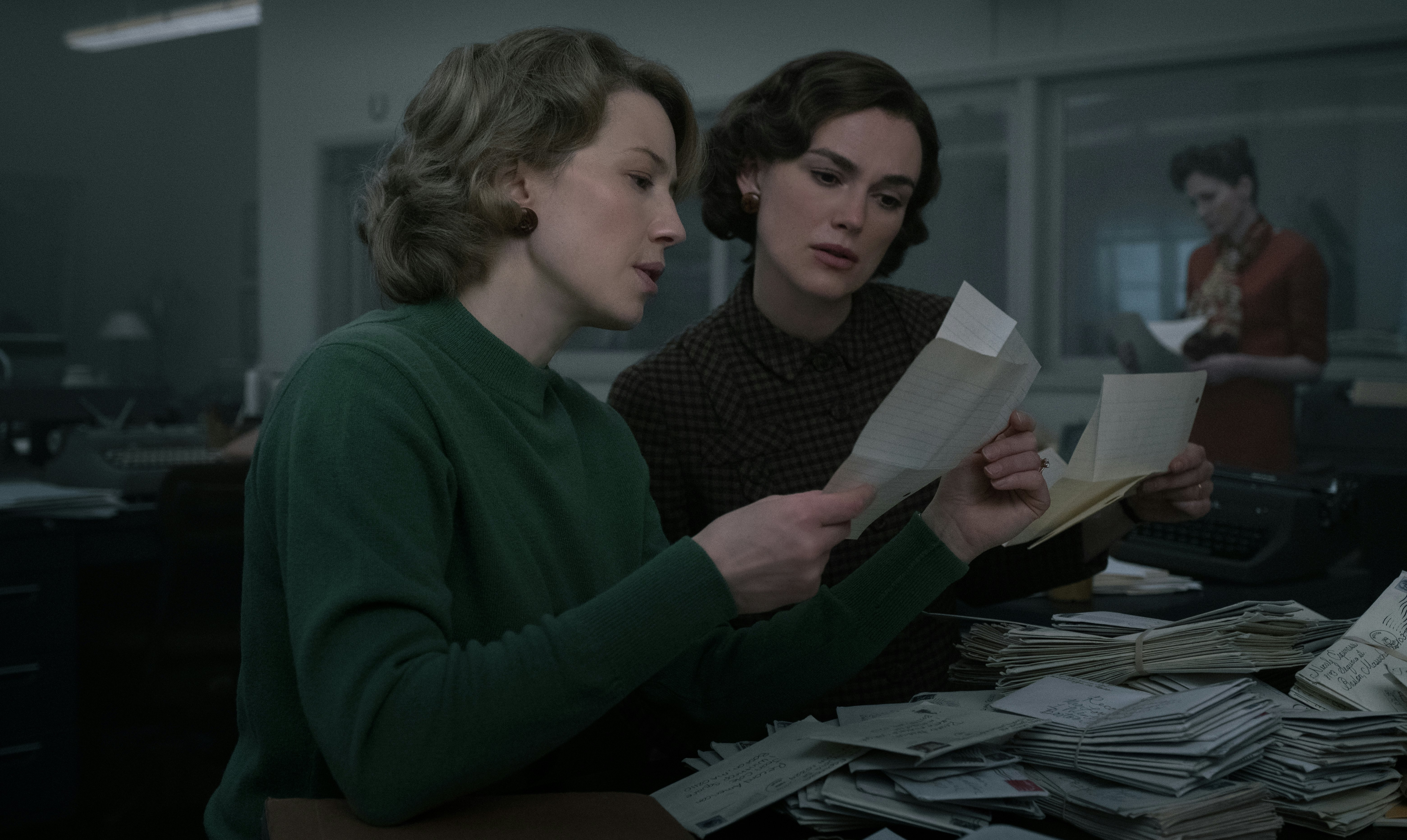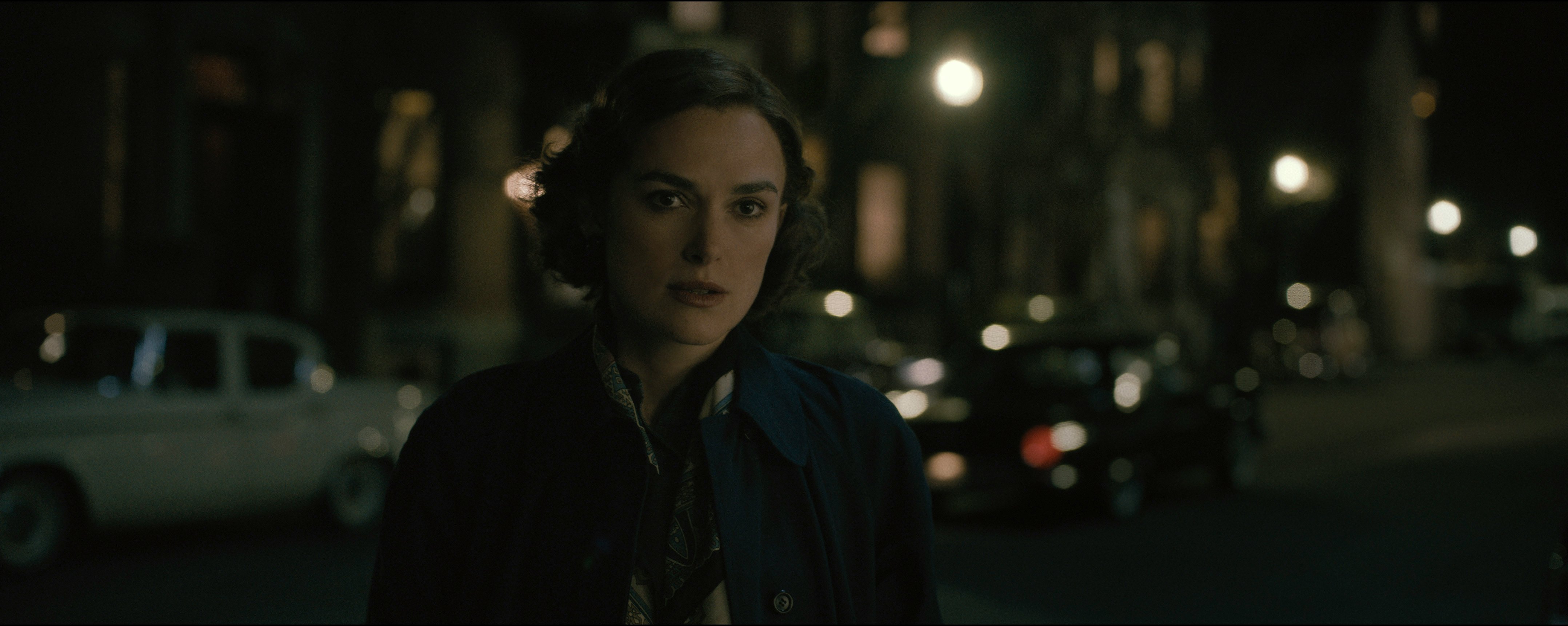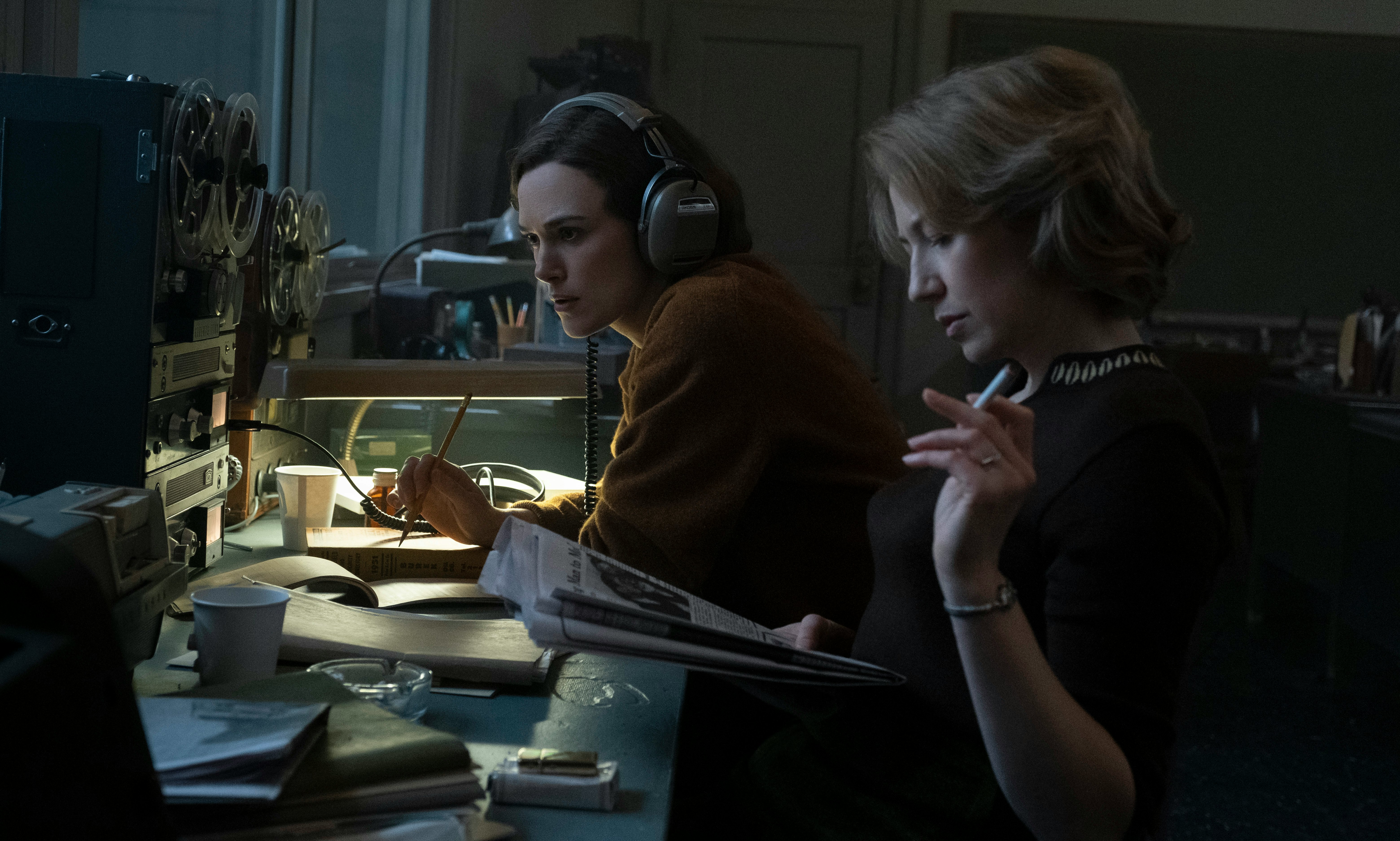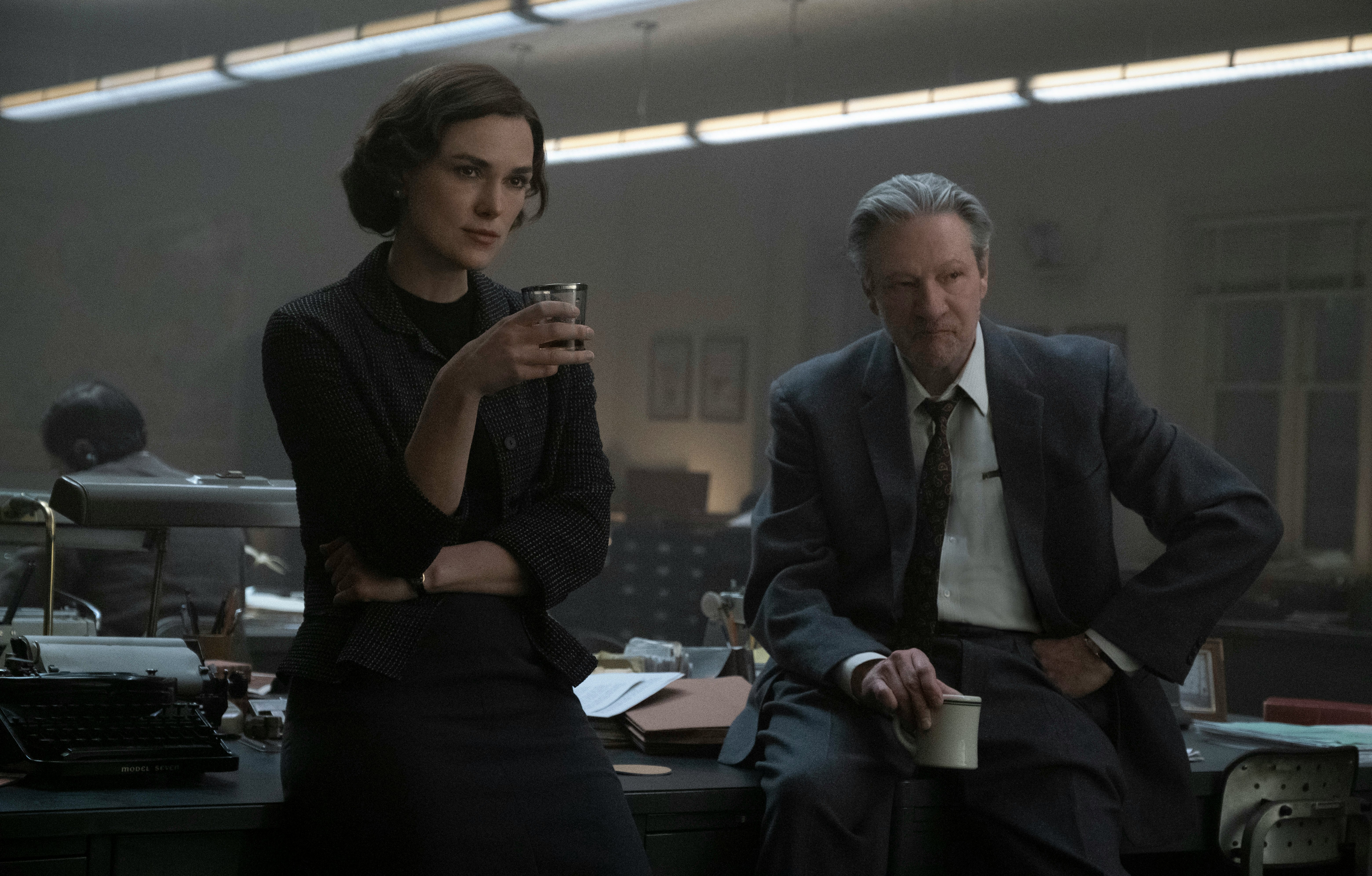
From 1962 to 1964, a series of killings in the Boston-area became a national obsession, prompting ladies of all ages to deadbolt their doors and peer out their peepholes for what seemed like the very first time in American history. The Boston Strangler murders also elicited dogged reportage from the most fitting — and yet the most peculiar — type of journalists at the time: women.
But Hulu’s Boston Strangler, unlike the real accounts it is adapted from, is only shocking due to its most glaring shortcoming. The Keira Knightley-headliner manages to make the true-crime genre — one that is inherently nail-biting and disturbingly enthralling — a slog. By the time the end credits roll, you won’t care much about the Boston Strangler’s horrific perversions or how the story was scooped by a pair of journalist trailblazers.

Boston Strangler is written and directed by Matt Ruskin (Crown Heights, another historical crime drama film), and produced by Ridley Scott. The film recounts the four-part journalistic investigation into the titular infamous 1960s serial killer that made it into print, as well as the muddled circumstances surrounding the case that rendered it a cold, uncrackable, and iconic puzzle in America’s true-crime lore. The leading women on the Boston Strangler beat are Loretta McLaughlin (Knightley), a frustrated lifestyle reporter who wants to give the Boston Record American’s readers something they can actually chew on, and Jean Cole (Carrie Coon), an experienced undercover reporter with more swagger and sway in their male-dominated newsroom.
Loretta and Jean suffer through sexism and shady policemen in their persistent chase for the truth as the Boston Strangler continues to be at large — sexually assaulting and strangling 13 single women between the ages of 19 and 85 with their own stockings — until, suddenly, the attacks stop in 1964. While Albert DeSalvo (a disquieting David Dastmalchian), a Massachusetts man with a long rap sheet, confesses to the crimes, Loretta remains skeptical. The newshound soon begins doubting whether the slain women have gotten justice, as she sets her sights on another possible suspect...
The plot and structure of Boston Strangler is clear, coherent, and chronological, which is the bare minimum for any film meant to reproduce a historical reality. It’s obvious while watching Boston Strangler that Ruskin and Scott both did their due diligence with the research, making sure to include important tidbits beyond the actual Boston Strangler case itself, like the dissolution of Loretta’s marriage (semi-directly caused by her coverage), and how a detective became involved with the production of the original 1968 Boston Strangler movie.

But the tone of Boston Strangler is deeply drab. Even the wins for Loretta and Jean’s reportage are dully underplayed, as if neither of these women ever felt an ounce of glee for their glass ceiling-shattering accomplishments in journalism at the time, or soured by the script’s trite commentary about misogyny in the home and in the workplace. The adrenaline rush of investigative work is divorced from Boston Strangler, leaving viewers to be compelled by the authentic (but not particularly entertaining) paperwork of the job.
Will Boston Strangler watchers at least have particularly interesting or bold cinematographic choices to look forward to? Nay. Like its tone, Boston Strangler struggles with its relentless determination to make everything look and sound too hyperrealistic, strangling itself creatively. There were shots that could have been visually engrossing, and moments that could have been framed to say more without speaking— not just the scenes between the Strangler and his Boston-area victims, but also scenes between Loretta and her husband, James (Morgan Spector, devilishly suave), and scenes between Loretta and her reporting partner, Jean. But Boston Strangler is disappointingly monotonous— and with a sickly-looking, olive-tone color throughout to boot. It is unclear whether or not Ruskin and Scott wanted to go with a more Se7en-esque aesthetic, but the figurative darkness surrounding the real-life Boston Strangler case doesn’t quite translate without the gory panache and shock factor of David Fincher’s aforementioned thriller. It’s just dark (literally).
Perhaps the only scene that stands out in both tone and tonality is one between Knightley and Ryan Winkles, who plays Daniel Marsh, a prime suspect in the Boston Strangler murders and the ex-boyfriend of one of the victims. There’s a certain twisted intimacy between them (that, somehow, not a single other pairing in Boston Strangler is able to replicate on-screen) as Loretta steps into his home, alone, and sees that it is covered in mannequins and fabric as Daniel beckons her to come in deeper into his dwelling. This scene makes one feel on edge. If only there were any others that did the same.
Yet the most alarming crime of Boston Strangler isn’t the actual crimes the film is inspired by. Its worst offense is rendering Knightley the default scene-stealer in the whole movie — not necessarily because her acting warrants it, but because all the rest of its characters are given so little to work with. Coon, who is fabulous in everything she’s ever done before, barely speaks; Spector, Dastmalchian, Luke Kirby (clumsily charming), and Chris Cooper are all severely underutilized.

Boston Strangler is not Hulu’s answer to the next She Said, or perhaps a gender-swapped Mindhunter, even if that was the intention. At least She Said and Mindhunter’s creators understood that audiences need more than just the (very) plain truth to keep them hooked, like the characters’ camaraderie. Regrettably, Coon and Knightley’s characters aren’t written to have a speck of chemistry between them. History confirms that Loretta and Jean were actually on the path to becoming the best of friends, but their movie versions are unable to keep any conversation going between them. Often they seem desperate to wrap the story up so they can go back to quietly eating lunch at their desks alone.
Not even Knightley’s gorgeously haunted expression in reaction to any development in the case can balance the apathy between the movie versions of Loretta and Jean toward each other. In turn, that apathy is contagious — taking over the entirety of the film. We eagerly welcome Knightley’s return to the genre she was born for — moody period dramas — but not like this. Not when Boston Strangler is all period, all mood, but, inexplicably, zero drama.







